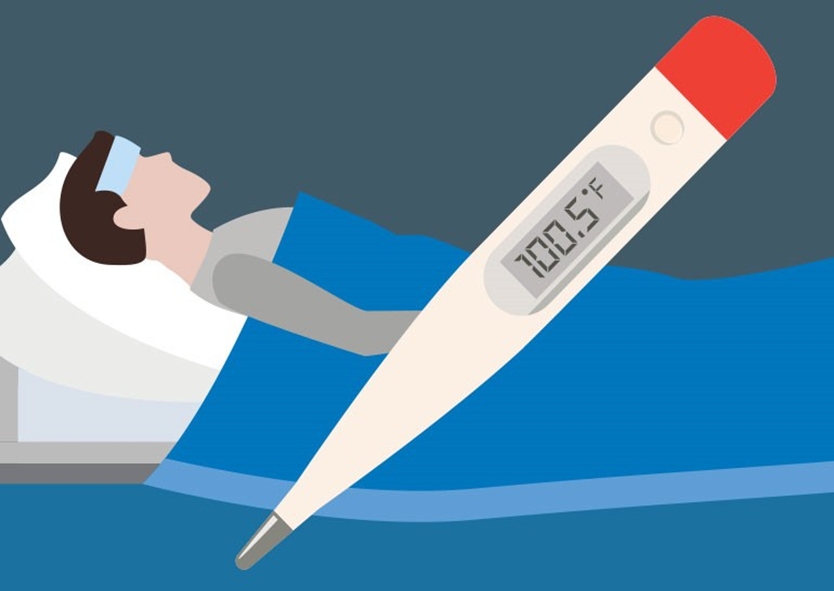A nurse is teaching a female client who has a new diagnosis of systemic lupus erythematosus (SLE). The nurse should recognize the need for further teaching when the client identifies which of the following as a factor that can exacerbate SLE?
Exercise
Diet
Sunlight
Infection
The Correct Answer is A
The correct answer is A. Exercise.
Choice A: Exercise Exercise is generally beneficial for overall health and is not typically a factor that exacerbates systemic lupus erythematosus (SLE). In fact, regular physical activity can be an important part of the overall treatment plan for individuals with SLE. It can boost energy levels, improve joint flexibility, and help alleviate stress. Therefore, if a patient with SLE identifies exercise as a factor that can exacerbate their condition, it indicates a need for further teaching.
Choice B: Diet Certain diets can potentially trigger or worsen SLE symptoms. For instance, a chemical found in alfalfa may trigger lupus symptoms, so patients may want to avoid eating alfalfa sprouts or taking supplements with alfalfa. Therefore, diet is a correct factor that can exacerbate SLE.
Choice C: Sunlight Exposure to sunlight can trigger or worsen SLE symptoms. For those with lupus, being in the sun can lead to symptoms like skin rashes, itching, burning, joint pain, weakness, and fatigue. In certain cases, it can also result in damage to internal organs. Therefore, sunlight is a correct factor that can exacerbate SLE.
Choice D: Infection Infections can trigger or worsen SLE symptoms. Rates of infections are higher among persons with SLE compared with the general population. Therefore, infection is a correct factor that can exacerbate SLE.
Nursing Test Bank
Naxlex Comprehensive Predictor Exams
Related Questions
Correct Answer is A
Explanation
Choice A rationale:
Fever is the most reliable early indicator of infection in a client with low WBC because it is a direct physiologic response to the presence of pathogens. When the body detects an infection, it releases pyrogens, which act on the hypothalamus to raise the body's temperature. This elevated temperature helps to create an environment that is less hospitable to bacteria and viruses, and it also stimulates the immune system to fight the infection.
In clients with low WBC, the immune system is already compromised, so the fever response may be even more pronounced. It's important to note that even a slight elevation in temperature (as low as 100.4°F or 38°C) can be significant in these clients.

Choice B rationale:
Chills can also be a sign of infection, but they are not as specific as fever. Chills can occur for other reasons, such as exposure to cold or anxiety.
Choice C rationale:
Tachycardia, or increased heart rate, can also be a sign of infection, but it is not as reliable as fever. Tachycardia can occur for other reasons, such as dehydration, pain, or anxiety.
Choice D rationale:
Dyspnea, or shortness of breath, is not a typical early sign of infection. It is more likely to occur in later stages of infection, when the infection has spread to the lungs.
Correct Answer is D
Explanation
Choice A is incorrect: Caffeine can worsen sleep disturbances, a common symptom of fibromyalgia.
Choice B is incorrect: While duloxetine is a medication used to manage fibromyalgia symptoms, taking it at a specific time for increased energy is not directly related to understanding the disease itself.
Choice C is incorrect: Fibromyalgia is a chronic condition with no cure. Chemotherapy is not indicated for its treatment.
Choice D is correct: Low-impact aerobics like walking, swimming, or yoga are recommended non-pharmacological interventions for fibromyalgia. They can improve cardiovascular health, flexibility, and pain management.
Additional notes:
Other non-pharmacological management strategies for fibromyalgia include stress management techniques, cognitive behavioral therapy, and adequate sleep hygiene.
Early and comprehensive management of fibromyalgia can significantly improve quality of life.
Whether you are a student looking to ace your exams or a practicing nurse seeking to enhance your expertise , our nursing education contents will empower you with the confidence and competence to make a difference in the lives of patients and become a respected leader in the healthcare field.
Visit Naxlex, invest in your future and unlock endless possibilities with our unparalleled nursing education contents today
Report Wrong Answer on the Current Question
Do you disagree with the answer? If yes, what is your expected answer? Explain.
Kindly be descriptive with the issue you are facing.
